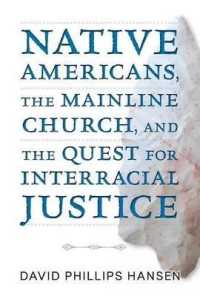- ホーム
- > 洋書
- > 英文書
- > Computer / General
Full Description
Many natural signals possess only a few degrees of freedom. For instance, the occupied radio spectrum may be intermittently concentrated to only a few frequency bands of the system bandwidth. This special structural feature - signal sparsity - is conducive in designing efficient signal processing techniques for wireless networks. In particular, the signal sparsity can be leveraged by the recently emerged joint sampling and compression paradigm, compressed sensing (CS). This monograph reviews several recent CS advancements in wireless networks with an aim to improve the quality of signal reconstruction or detection while reducing the use of energy, radio, and computation resources. The monograph covers a diversity of compressive data reconstruction, gathering, and detection frameworks in cellular, cognitive, and wireless sensor networking systems.
The monograph first gives an overview of the principles of CS for the readers unfamiliar with the topic. For the researchers knowledgeable in CS, the monograph provides in-depth reviews of several interesting CS advancements in designing tailored CS reconstruction techniques for wireless applications. The monograph can serve as a basis for the researchers intended to start working in the field, and altogether, lays a foundation for further research in the covered areas.
Contents
1. Introduction
2. Fundamentals of Compressed Sensing
I. Advanced Signal Reconstruction from Compressive Measurements
3. Online Adaptive Estimation of Sparse Signals: Where RLS Meets the l1-Norm
4. Sparsity-Cognizant Total Least-Squares for Perturbed Compressive Sampling
II. Compressive Data Gathering in Wireless Sensor Networks
5. Compressed Acquisition of Correlated Streaming Sensor Data
6. Distributed Source Coding via Quantized Compressed Sensing
7. Rate-Distortion Performance of Lossy Compressed Sensing
III. Sparsity-Enabled Cognitive and Cellular Communicationse
8. Channel Gain Cartography for Cognitive Radios Leveraging Low Rank and Sparsity
9. Exploiting Sparse User Activity in Multiuser Detection
10. Summary
Acknowledgements
References







